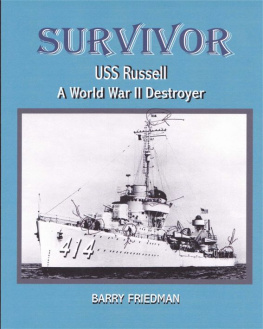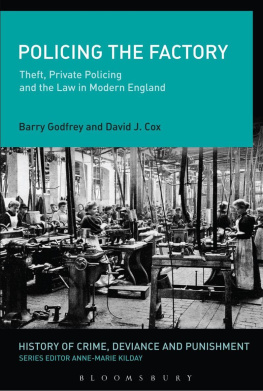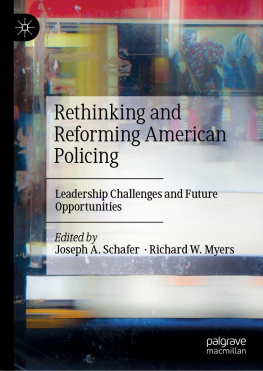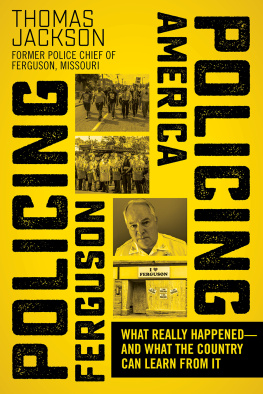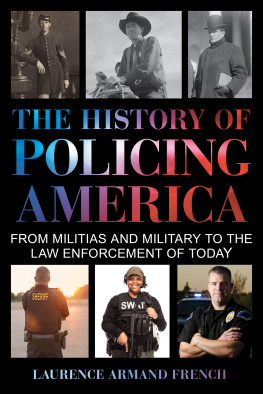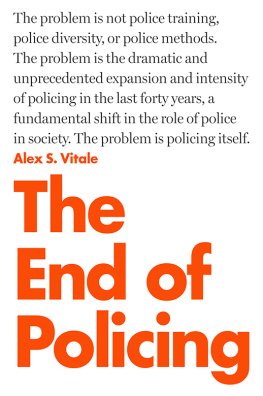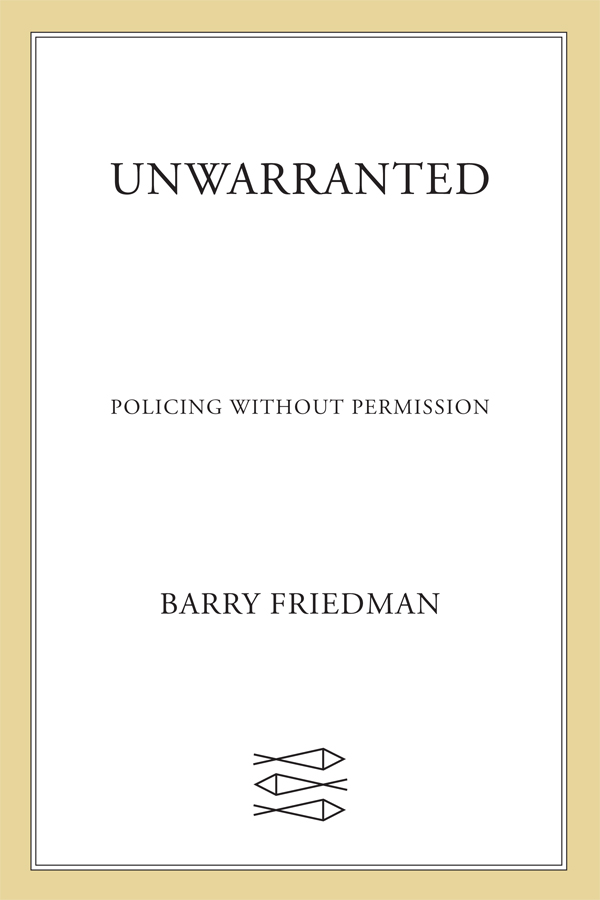Barry Friedman - Unwarranted: Policing Without Permission
Here you can read online Barry Friedman - Unwarranted: Policing Without Permission full text of the book (entire story) in english for free. Download pdf and epub, get meaning, cover and reviews about this ebook. year: 2017, publisher: Farrar, Straus and Giroux, genre: Politics. Description of the work, (preface) as well as reviews are available. Best literature library LitArk.com created for fans of good reading and offers a wide selection of genres:
Romance novel
Science fiction
Adventure
Detective
Science
History
Home and family
Prose
Art
Politics
Computer
Non-fiction
Religion
Business
Children
Humor
Choose a favorite category and find really read worthwhile books. Enjoy immersion in the world of imagination, feel the emotions of the characters or learn something new for yourself, make an fascinating discovery.

- Book:Unwarranted: Policing Without Permission
- Author:
- Publisher:Farrar, Straus and Giroux
- Genre:
- Year:2017
- Rating:3 / 5
- Favourites:Add to favourites
- Your mark:
Unwarranted: Policing Without Permission: summary, description and annotation
We offer to read an annotation, description, summary or preface (depends on what the author of the book "Unwarranted: Policing Without Permission" wrote himself). If you haven't found the necessary information about the book — write in the comments, we will try to find it.
At a time when policing in America is at a crossroads, Barry Friedman provides much-needed insight, analysis, and direction in his thoughtful new book. Unwarranted illuminates many of the often ignored issues surrounding how we police in America and highlights why reform is so urgently needed. This revealing book comes at a critically important time and has much to offer all who care about fair treatment and public safety. Bryan Stevenson, founder and Executive Director of the Equal Justice Initiative and author of Just Mercy: A Story of Justice and Redemption
In June 2013, documents leaked by Edward Snowden sparked widespread debate about secret government surveillance of Americans. Just over a year later, the shooting of Michael Brown, a black teenager in Ferguson, Missouri, set off protests and triggered concern about militarization of law enforcement and discriminatory policing. In Unwarranted, Barry Friedman argues that these two seemingly disparate events are connectedand that the problem is not so much the policing agencies as it is the rest of us. We allow these agencies to operate in secret and to decide how to police us, rather than calling the shots ourselves. And the courts, which we depended upon to supervise policing, have let us down entirely.
Unwarranted tells the stories of ordinary people whose lives were torn apart by policingby the methods of cops on the beat and those of the FBI and NSA. Driven by technology, policing has changed dramatically. Once, cops sought out bad guys; today, increasingly militarized forces conduct wide surveillance of all of us. Friedman captures the eerie new environment in which CCTV, location tracking, and predictive policing have made suspects of us all, while proliferating SWAT teams and increased use of force have put everyones property and lives at risk. Policing falls particularly heavily on minority communities and the poor, but as Unwarranted makes clear, the effects of policing are much broader still. Policing is everyones problem.
Police play an indispensable role in our society. But our failure to supervise them has left us all in peril. Unwarranted is a critical, timely intervention into debates about policing, a call to take responsibility for governing those who govern us.
Barry Friedman: author's other books
Who wrote Unwarranted: Policing Without Permission? Find out the surname, the name of the author of the book and a list of all author's works by series.

